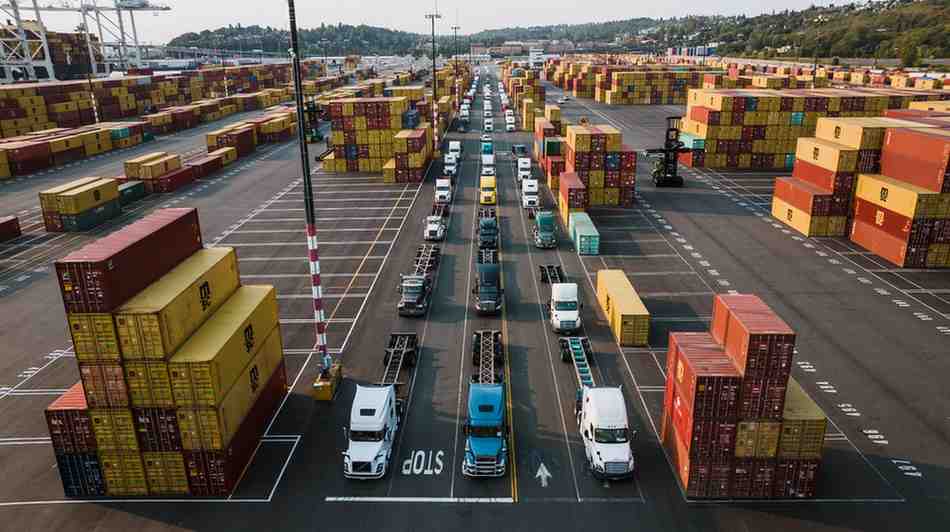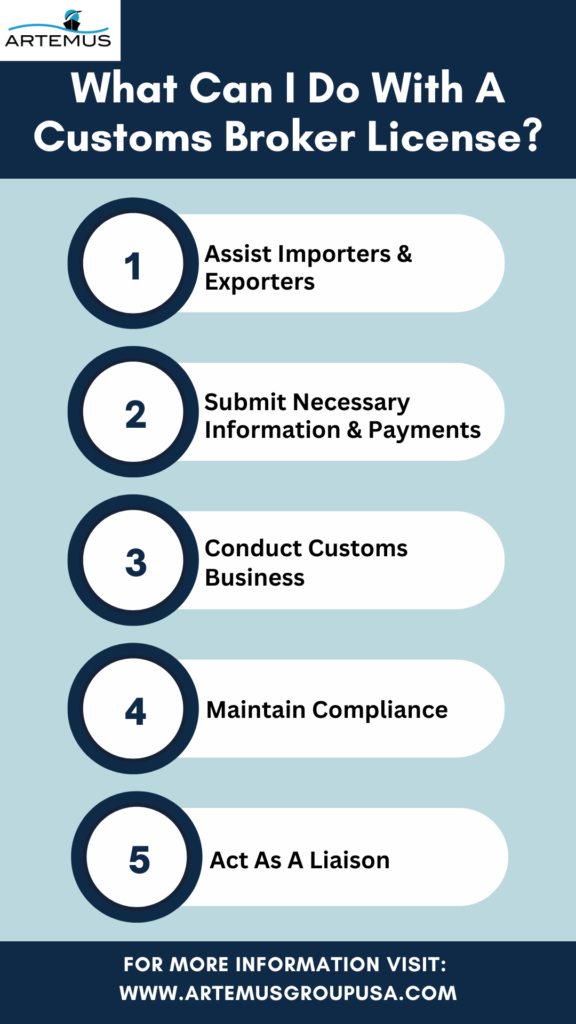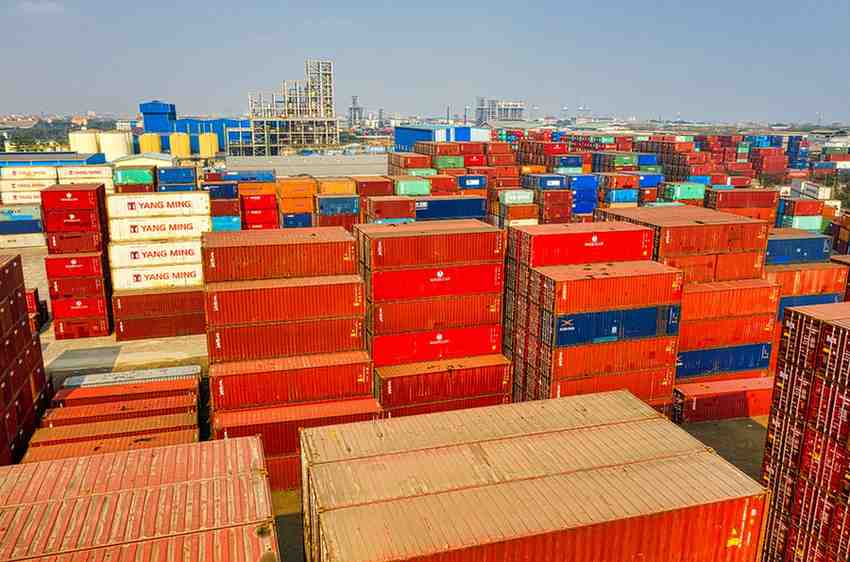
What Is Inbound Logistics & Outbound Logistics? A 2025 Guide
In the dynamic world of supply chain management, understanding the nuances of inbound and outbound logistics is crucial for operational

Unlocking the vast realm of international trade, obtaining a customs broker license paves the way for diverse professional opportunities. From facilitating seamless transactions and providing expert consultation to navigating supply chain logistics and managing customs compliance programs, the possibilities are extensive.
Artemus Transportation Solutions stands out as offering the #1 customs broker software for compliance. Artemus offers a comprehensive solution to streamline compliance processes, enabling efficient management of documentation, tracking regulatory changes, and ensuring the seamless clearance of goods.
With Artemus as a trusted ally, those with a customs broker license can enhance their capabilities and navigate the intricacies of customs compliance with confidence and efficiency.
Table Of Contents
A Customs Broker License is a credential issued by the U.S. Customs and Border Protection (CBP) to private individuals, partnerships, associations, or corporations, enabling them to assist importers and exporters in meeting federal requirements governing imports and exports.
To obtain this license, individuals must pass the Customs Broker License Examination and submit a broker license application with appropriate fees. Once licensed, brokers submit necessary information and payments to CBP on behalf of their clients, charging a fee for this service.
The license is regulated and empowered by CBP to ensure compliance with import and export regulations, and brokers must possess expertise in entry procedures, admissibility requirements, classification, valuation, and applicable duties and taxes for imported merchandise.
Related: Customs Broker Exam Registration: In-Person & Remote CBLE
Entering the realm of international trade as a licensed customs broker is a meticulous journey. Here’s a step-by-step guide to help you navigate the process of obtaining a customs broker license and embark on a career in facilitating seamless cross-border transactions.
Individuals must pass the Customs Broker License Examination to qualify for the license. The exam covers various topics, including entry procedures, admissibility requirements, classification, valuation, and applicable duties and taxes for imported merchandise.
After passing the exam, individuals must submit a broker license application with appropriate fees. The application includes providing evidence of U.S. citizenship, a full credit report, and a copy of the passing exam notification letter issued by the Broker Management Branch (BMB).
The application process involves a background investigation to determine the applicant’s qualifications, including their business integrity, financial responsibility, and character. The investigation also covers the accuracy of the statements made in the application and interview, as well as the applicant’s reputation and any association with individuals that may present A threat to the security or financial revenue generation of the United States.
If the investigation deems the applicant qualified, the Broker Management Branch (BMB) will issue the license. The license allows individuals to conduct customs business on behalf of other persons, and it must be renewed annually.
Corporations, partnerships, and associations must have at least one individually licensed officer, partner, or associate to qualify for the company’s license. Licensed brokers must also maintain their expertise in entry procedures, admissibility requirements, classification, valuation, and applicable duties and taxes for imported merchandise. Additionally, they must adhere to the rules and regulations set forth in Part 111 of the CBP Regulations (19 C.F.R. 111.0, et seq.).
Related: How To Find A Customs Broker? 7 Important Factors To Know

Unlocking a world of opportunities, a customs broker license empowers individuals to engage in various essential roles within the international trade landscape. Here’s a breakdown of what you can do with a customs broker license:
Customs brokers in the United States hold licenses, operate within regulatory frameworks, and are vested with authority. The Customs and Border Protection (CBP) is dedicated to aiding importers and exporters in fulfilling federal regulations that pertain to the import and export processes.
Brokers provide essential information and make relevant payments to the U.S. Customs and Border Protection (CBP) on behalf of their clients, charging a fee for facilitating this service.
With a Customs Broker License, individuals can conduct customs business on behalf of other persons, and they must maintain their expertise in entry procedures, admissibility requirements, classification, valuation, and applicable duties and taxes for imported merchandise.
Licensed brokers must adhere to the rules and regulations set forth in Part 111 of the CBP Regulations (19 C.F.R. 111.0, et seq.) and must maintain their expertise in entry procedures, admissibility requirements, classification, valuation, and applicable duties and taxes for imported merchandise.
Licensed customs brokers act as liaisons between the federal government and import/export firms, handling the logistics of moving products across borders, tracking shipments, filing customs entries, and paying duties and fees.
Related: What Does A Customs Broker Do? 10 Key Responsibilities
Related: Customs Broker VS Freight Forwarder: 5 Key Differences
Here are five key benefits that underscore the significance of holding a customs broker license:
Related: How To Become A Customs Broker? A Step-By-Step Journey
Artemus stands out as the premier customs broker software, redefining the landscape of compliance management for businesses engaged in international trade. Regarded as the #1 choice for customs brokers, Artemus seamlessly integrates cutting-edge technology with comprehensive regulatory knowledge, streamlining the customs clearance process. With an intuitive interface and robust features, the software empowers customs brokers to efficiently manage import and export documentation, tariff classifications, and regulatory compliance.
The software’s user-friendly design simplifies complex customs procedures, allowing users to navigate the intricate web of international trade regulations effortlessly. Artemus not only ensures accuracy in customs declarations but also enhances productivity, enabling customs brokers to focus on strategic decision-making. In the ever-evolving world of global trade, Artemus emerges as an indispensable tool, setting the standard for compliance excellence in customs brokerage software.
Related: ISF Fees (Import Security Filing): When & How To Pay?
A customs broker license offers expertise in navigating customs regulations, facilitating smooth import/export processes, mitigating risks, and providing versatile career opportunities in international trade compliance.
A licensed customs broker facilitates the smooth clearance of goods through customs by ensuring compliance with regulations, handling documentation, and representing clients’ interests before customs authorities.
A customs broker streamlines the import/export process, ensuring compliance with customs regulations, minimizing delays, and representing your interests before customs authorities.

In conclusion, obtaining a Customs Broker License opens the door to a range of crucial activities in the field of international trade. From preparing and processing import/export documentation to clearing goods through customs and determining and tracking duties and taxes payable, licensed customs brokers play a vital role in ensuring compliance with trade laws and regulations.
Additionally, with the support of advanced customs broker software like Artemus Transportation Solutions, the process of trade compliance becomes seamless. Artemus offers a web-based solution that streamlines the customs brokerage process, empowering importers to navigate the complexities of global commerce with confidence. The combination of a Customs Broker License and the use of leading software such as Artemus is essential for ensuring smooth and efficient international trade operations.
Related: What Is HTS Code (Harmonized Tariff Schedule)? A Quick Guide

In the dynamic world of supply chain management, understanding the nuances of inbound and outbound logistics is crucial for operational

In today’s interconnected world, businesses rely heavily on global trade to expand their markets, access new resources, and drive growth.

Importing goods for resale in the USA presents a lucrative business opportunity, but navigating the complexities of U.S. customs regulations,
Get In Touch
Artemus’ Software Solutions for ISF, AMS, Japan AFR, eManifest Canada, & Panama B2B filings.